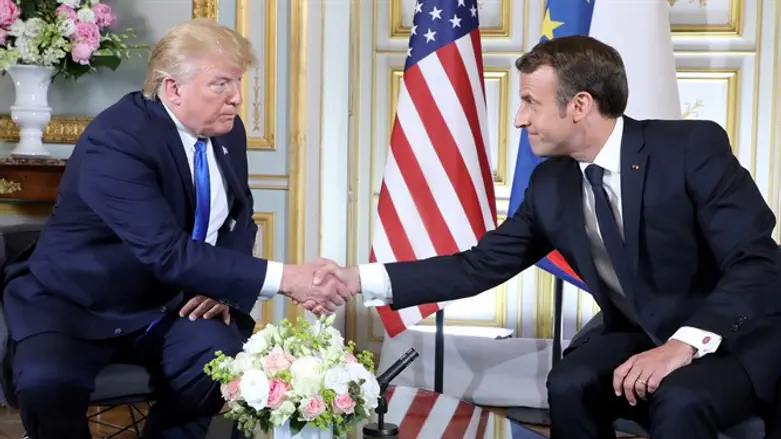
France said Friday that it "needs no permission" to work towards easing tensions between Iran and the US, a day after President Donald Trump accused his French counterpart Emmanuel Macron of meddling in the dispute.
"On Iran, France speaks with complete sovereignty. It is working hard for peace and security in the region, it is working to facilitate a de-escalation in tensions and it needs no permission to do so," Foreign Minister Jean-Yves Le Drian said in a statement quoted by AFP.
The statement came a day after Trump wrote on Twitter that Macron was sending "mixed signals" to Iran.
“Iran is in serious financial trouble. They want desperately to talk to the U.S., but are given mixed signals from all of those purporting to represent us, including President Macron of France,” tweeted Trump.
“I know Emmanuel means well, as do all others, but nobody speaks for the United States but the United States itself. No one is authorized in any way, shape, or form, to represent us!” he added.
Le Drian said on Friday that the worsening tensions between Tehran and Washington, which have been blamed for attacks on oil tankers in the Gulf and downings of drones, called for initiatives to try to restore dialogue.
"That's what President Macron is doing, in full transparency with our partners, above all our European partners," he said, adding that Macron was "obviously keeping American authorities informed".
While he did not specifically say so, it appeared Trump was responding to a report on the Al-Monitor news site earlier this week claiming that Macron, who speaks regularly by telephone with Iranian President Hassan Rouhani, had invited Rouhani to attend the G7 summit in France on August 24-26 to meet with Trump.
The report, which cited two unidentified sources, said Rouhani had declined to attend or send a representative.
The French presidency has denied the report, saying Macron never put forward any such proposal.
Trump withdrew from the 2015 nuclear deal last May, and later imposed two rounds of sanctions on Iran, the latest of which went into effect in November of 2018.
The European signatories to the 2015 deal – including Britain – did not agree with Trump’s decision to leave the agreement and vowed to help Iran evade the economic sanctions imposed by the US, shielding companies doing business with the rogue state in an effort to preserve the Iran nuclear deal.
Macron has made clear there is no “plan B” for the Iran nuclear deal, even though he has also repeatedly expressed concerns over Iran’s ballistic missile program.
(Arutz Sheva’s North American desk is keeping you updated until the start of Shabbat in New York. The time posted automatically on all Arutz Sheva articles, however, is Israeli time.)